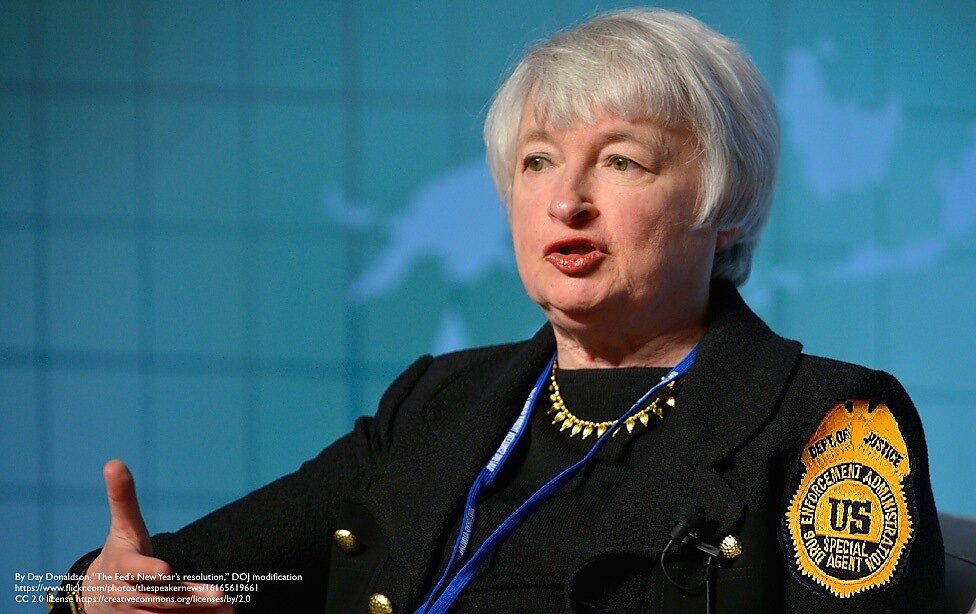It appears, though, that Federal Reserve officials aren’t content with the job that Congress has assigned to them. You can hardly blame them, since that job has proven to be…well, not exactly the Fed’s cup of tea. There are all sorts of adjectives that might describe the state of employment in the U.S. since 2008, but “maximum” certainly isn’t one of them. As for keeping prices “stable,” well, if the Fed can claim to have generally done that well, it’s because, like Lewis Carroll’s Humpty Dumpty, it gets to make “stable” mean whatever it chooses it to mean. Although the Fed might claim that prices really haven’t risen much since September 2008, everyone knows that this has been so, not because the Fed intended it, but despite every effort on its part to get prices to double every 36 years, if not faster.
It’s only natural, therefore, that the Fed should try its hand at something new. So it has decided to do its part to help win the war on drugs. To be specific, it has decided to help the Federal government in its effort to keep a lid on legal marijuana production despite the steps some state governments have taken to allow it.
Just how is the Fed helping? Like other businessmen, legitimate marijuana growers need bank accounts, so they don’t have to resort to the dangerous, inconvenient, and uneconomical alternative of dealing only in cash. Ordinary banks won’t open accounts for them because they fear the extra scrutiny this will subject them to — as if Dodd-Frank weren’t bad enough. To solve the problem, some enterprising Colorado pot growers decided to form their own credit union. To do that, they needed the Fed’s permission to open a “master account” with it — that’s the account qualifying financial institutions must keep with the Fed in order to take advantage of its payment-related services, including check clearing and wire transfers. To contribute to the drug war, all the Fed had to do was to deny the request. And that’s just what the Kansas City Fed, whose territory includes Colorado, did last week when it refused to grant an account to Denver’s Fourth Quarter Credit Union.
Now, you may not smoke dope, and you may even think it ought to be illegal. But pot isn’t the issue here. The issue is the Fed. For whatever you may think about marijuana, you should be appalled by the Fed’s flagrant abuse of its authority. The Fed’s job is to see to the integrity of the monetary and banking system, not to hinder (legal) marijuana production. It has been awarded the power to decide which firms bank with it, and which ones don’t, only for the sake of performing the tasks expressly assigned to it.* If it denies a financial institution a master account, it ought to be because doing otherwise would somehow put other financial institutions, and hence the payments system, in harm’s way, and not for any other reasons.
The significance of the drug angle, so far as I’m concerned, consists of one thing only, to wit: the fact that it has made the Federal Reserve’s abuse of its discretionary power newsworthy. My guess is that what happened to the Fourth Quarter Credit Union has happened to other would-be financial service providers. But even if this one offense isn’t the tip of a very big iceberg, it alone should suffice to justify a Congressional inquiry into the Fed’s master-account approval procedures, with the aim of checking at least one small part of the Fed’s dangerously unconstrained powers.
____________________________
*Although the Fed’s powers include its power to oversea the clearing of checks and other interbank transactions, there is in fact no good reason why these functions should be undertaken by it rather than by private firms. For a history and critical assessment of the Fed’s involvement in check clearing, see Lacker, Walker, and Weinberg.


